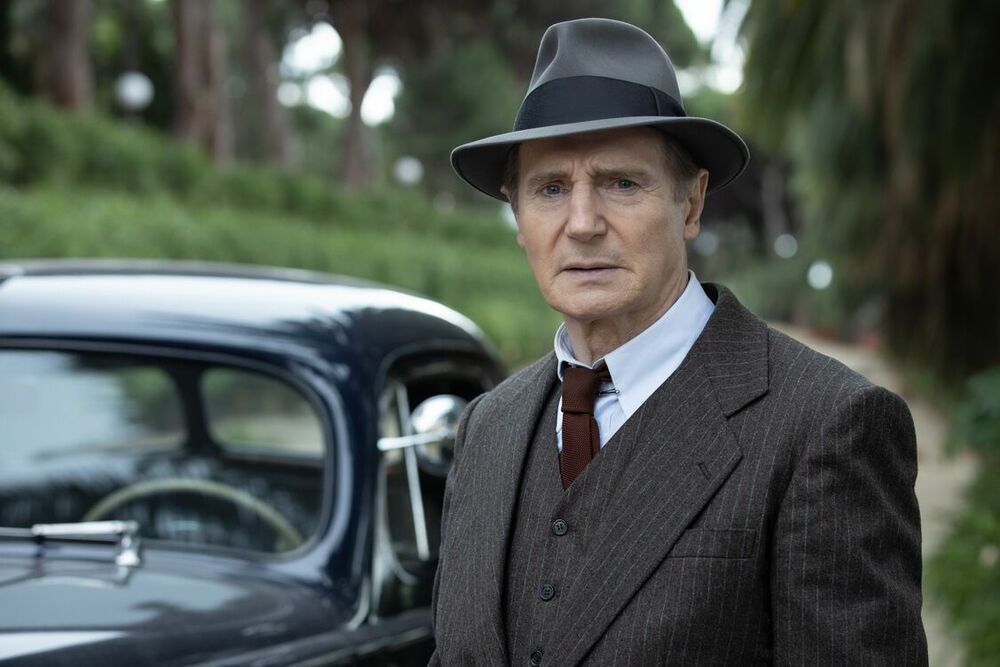“MARLOWE”; by-the-book noir is eye-catcher! | REVIEW
Ceiling fans, a dame of dubious motivations, drugs, sex, the sinister side of Hollywood, top hats and tommy guns, high stops from above ceiling fans, they’re all here in “Marlowe,” the new noir thriller from filmmaker Neil Jordan (“The Crying Game,” “The End of the Affair”), with Liam Neeson as the dependable yet perennially down-on-his-luck private eye Philip Marlowe.
“Marlowe” finds Raymond Chandler’s gumshoe in a new mystery based on a novel by John Banville and adapted for the screen by Jordan and William Monahan (“The Departed”). It’s 1939 Los Angeles, naturally, when Marlowe gets a visit from Clare Cavendish (Diane Kruger), who wants to hire the PI to locate the whereabouts of her innamorato. Of course he shouldn’t, but work is work and the Depression still rages, and thus into the maelstrom of interwar Hollywood he goes.
In addition to the trauma of having served in the World War I, Marlowe will meet up with plenty of devils while trying to crack the case of the missing man. Among the most fascinating are a rich Irish immigrant (Jessica Lange), a seedy gangster (Alan Cumming) and, of course, Danny Huston as the guy up to no good—as only Danny Huston can. It’s a rich panoply of the sordid set against the end of Hollywood’s first decade of talking pictures and the inevitability of World War II nipping at the decade’s heels.
Neeson’s twist on the hero is refreshing: In addition to Marlowe’s cynicism and world-weariness, he brings to him a bit of that rough-and-tumble attitude that has served him so well in so many movies requiring him to break so many bones. Neeson’s Marlowe drinks frequently, but never seems to be drunk; he seems to toss back the whiskey more because it’s part of the job than to silence the demons.
The story is complex in the grand tradition of noir. Alliances are formed and sundered, and allies come from unexpected quarters, notably Colm Meaney as a friendly G-man and Adewale Akinnuoye-Agbaje as Cedric, a chauffeur who has eavesdropped on many a disreputable conversation in the backseat of his limo. Marlowe will be double-crossed, beaten up, drugged and somehow come out on top of it all.
Of the plot that’s all you need know. Tales such as “Marlowe” are never really about whodunnit as much as exposing the underside of society, where power is access and some will do anything for it. There’s a well-staged shootout late in the film, but there’s not nearly as much violence as one might expect of an L.A. noir such as this—especially with Neeson in the lead. The film takes no chances, but that’s OK: it’s an entertainment, pure and simple.
Opens wednesday
news via inbox
Nulla turp dis cursus. Integer liberos euismod pretium faucibua



